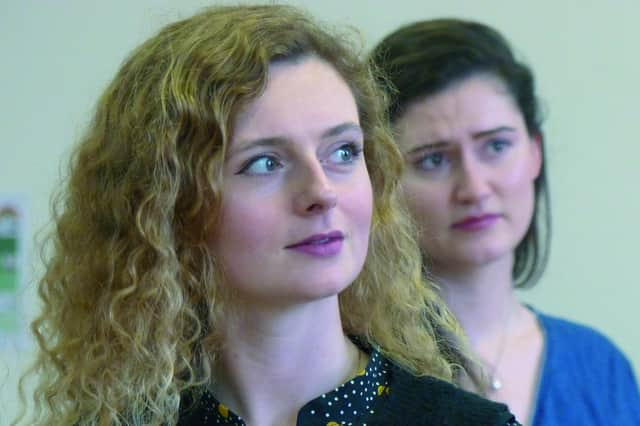Miners' strike is updated setting for satirical opera from New Sussex Opera


Spokesman Tim Locke said: “The Dragon of Wantley is a delightful spoof of Italian opera, written by John Frederick Lampe in 1737. Lampe was the bassoonist in Handel’s orchestra, as well as a hugely talented composer in his own right. When it was first performed it was a sensation: no one had ever parodied opera before.
“Lampe’s brilliantly well written, deadpan score that sounds just like Handel but is full of musical jokes contrasts with the absurd English words and engagingly silly story. A dragon is rampaging around a Yorkshire village, eating people, houses and churches and causing mayhem. Only the drunken squire can rescue the situation but has to sort his love life out first. He delivers the coup de grace – a kick up the dragon’s backside and everyone rejoices, singing Handel-style music to the words Sing, Sing and Roar-io, an Oratorio. And all is well again in the village of Wantley. The story goes that Handel went to see the opera and was greatly amused.
Advertisement
Hide AdAdvertisement
Hide Ad“Director Paul Higgins is joined by music director Toby Purser who last joined forces in 2018 with New Sussex Opera’s production of Stanford’s The Travelling Companion. Paul says that The Dragon of Wantley made satirical references to the government of the day, and so the New Sussex Opera modern-dress production updates the political background to the 1980s with a few surprises in store.”
Tim added: “The Dragon of Wantley was written at a time where there was dissatisfaction with the government’s taxation policies, and it was based on a ballad set in south Yorkshire. New Sussex Opera has kept the Yorkshire setting, but moved it to the 1980s and has given the dragon itself a satirical edge – as the beast comes up against picketing, banner-waving miners and their families from the Yorkshire miners’ strike. The dragon itself takes on a startling form that will be instantly recognisable – but we’re not spoiling the surprise by announcing what it will be! In setting The Dragon of Wantley in the 1980s, we wanted to try and plug in to some of the satirical energies of Lampe’s opera. Just as his audiences were highly attuned to the operatic and political jibes that animate his piece, we wanted to bring a similarly iconic and charged context to ours; we also wanted to acknowledge Handel’s legacy in our production, recognising his place in our musical communities and heritage, just as Lampe did for his audience.
“It is now forty years since the miners’ strike – a political earthquake whose aftershocks still rumble today in communities across the UK. It is still an event in living memory but has also taken on the quality of myth, with a cast of heroes and villains whose legacies – and histories – are hotly contested. The confrontation between the miners and police at the picket lines, most notoriously and violently at the Battle of Orgreave, seemed to fit well with the medievalism of Lampe and Carey’s opera.”
The production is fully staged, in the original English, with baroque orchestra and a cast of professional soloists: Ana Beard Fernández, Charlotte Badham, Magnus Walker and Robert Gildon, plus the New Sussex Opera chorus. Performances: All Saints Centre, Lewes, 7pm, Sunday, April 14; the Old Market, Hove, 4pm, Sunday, April 21; Trinity Theatre, Tunbridge Wells, 7.30pm, Friday, April 26; Theatre Royal, Winchester, 4pm, Sunday, May 5; and Devonshire Park Theatre, Eastbourne, 4pm, Sunday, May 12.